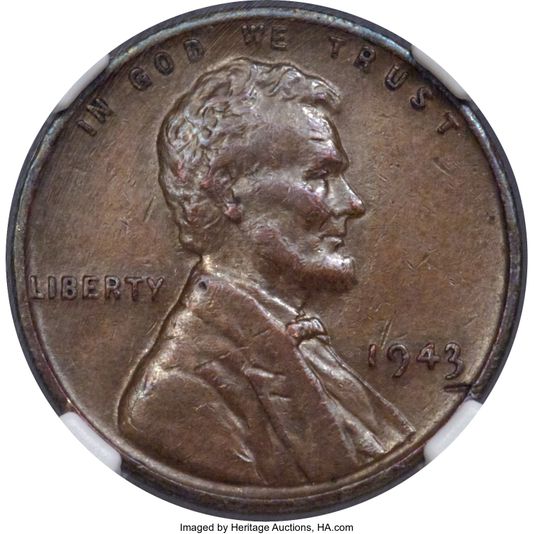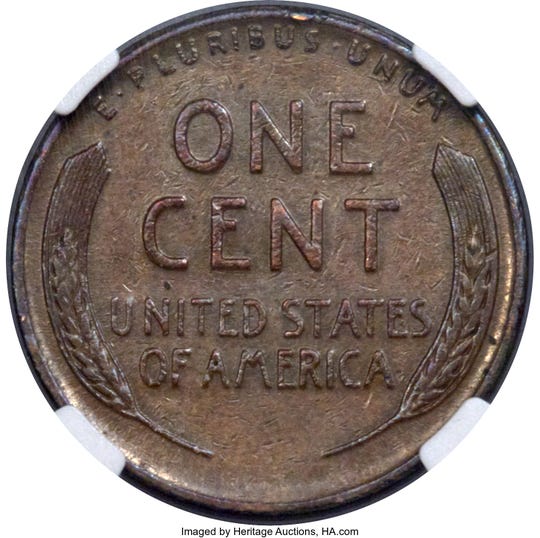
In 1947, a Massachusetts teenager was given a handful of change from his school cafeteria. One of those coins could bring in six figures at an upcoming auction.
The rare coin was mistakenly minted in copper in 1943 when all U.S. cents were supposed to be made of zinc-coated steel – copper was needed to produce bullets and wire for the World War II effort, according to Heritage Auctions, which is selling the coin.
“This is the most famous error coin in American numismatics and that’s what makes this so exciting: No one really knows what it’s going to sell for,” Sarah Miller, a director of numismatics at Heritage Auctions, said in a statement.
Soon after the switch to steel cents was made, stories about a small number of 1943 copper pennies began to circulate, the auction house said. Rumors swirled that Henry Ford would give a new car to anyone who found one of the coins.
A few years later, 16-year-old Don Lutes Jr., of Pittsfield, Massachusetts, discovered one such coin in his pocket change. Miller told USA TODAY he knew the coin was special because he was a collector.

He checked with the Ford Motor Co. about the new car, but was told the rumor was false.
When he asked the Treasury Department about the coin, he hit another dead end: “In regard to your recent inquiry, please be informed that copper pennies were not struck in 1943. All pennies struck in 1943 were zinc coated steel.”
Miller said Lutes held on to the penny until he approached Heritage about selling it in 2018, hoping to share it with other collectors and donate the profits to his local library. She said he passed away before the coin could go up for auction, “but his legacy lives on through the excitement.”
The penny will go on sale Thursday through Sunday in Orlando, Florida. Heritage Auctions estimates the coin may go for upwards of $170,000.
Another 1943 bronze cent minted in Denver sold for a record $1.7 million in 2010. That coin was one of a kind, Miller said, resulting in a much higher price tag. Miller estimates there are about 10-20 other coins like Lutes’, which was minted in Philadelphia.























